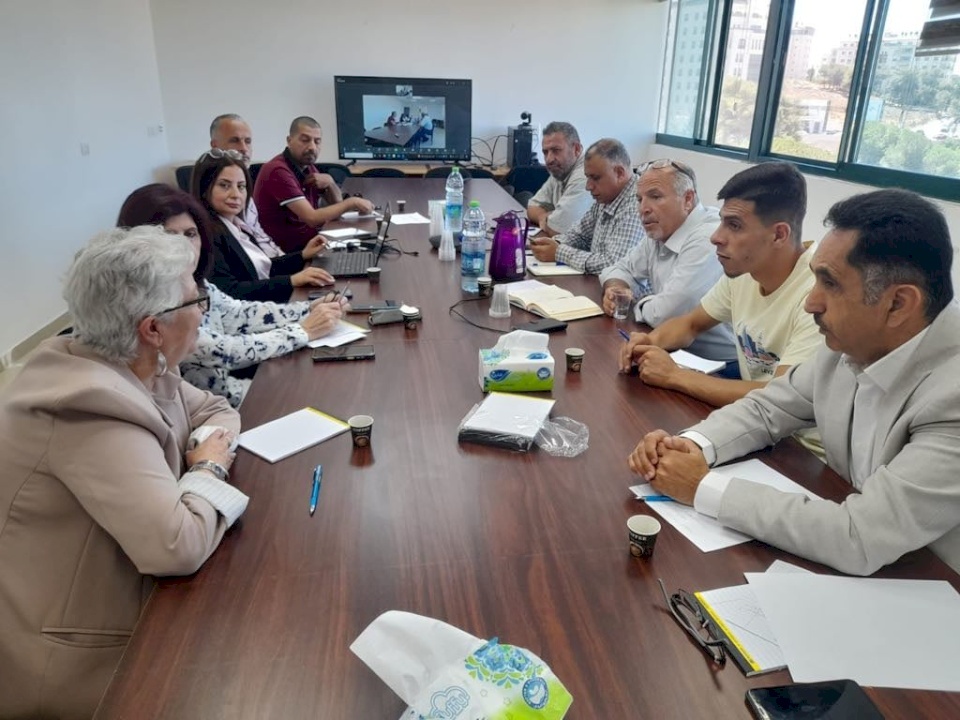
The Health Sector of the Network of Civil Organizations Issues an Urgent Call to Prevent the Collapse of the Health System in Gaza Strip
SadaNews - The health sector of the Palestinian Network of Civil Organizations has recommended the necessity of pressing to protect the health system in the Gaza Strip and the West Bank from the risk of collapse amid the ongoing Israeli targeting in the context of the genocide and infliction of suffering on the Palestinian people since October 2023. It emphasized the importance of saving the health sector, pressuring to stop the targeting of hospitals, and working to supply them with fuel. During the meeting held yesterday afternoon at the Network's hall in Ramallah, with the participation of health institutions, the health sector warned of the serious repercussions arising from targeting hospitals on the lives of the wounded and patients, especially those suffering from chronic illnesses, kidney dialysis, and children. Additionally, the closure of cities and roads, with over 800 military checkpoints, has hindered the health system's operations in the West Bank and targeted medical teams, obstructing their ability to provide medical services and access for patients to hospitals in occupied Jerusalem. The ongoing piracy by the occupation of clearance funds has also exacerbated the economic situation and led to a strike by government sector employees.
The meeting, which opened with a welcoming word by Huda Al-Saqa, the project coordinator, discussed the importance of strengthening the role of civil organizations as an influential force in national and local policies and also working at the international level to garner support and adopt the human rights issues of the Palestinian people. It provided an explanation of the main components of the action plan for the next phase, which includes programs, fact sheets, advocacy tools, and meetings with decision-makers, in addition to a training program in practice, targeting a number of grassroots organizations to activate roles at the local level and hold several workshops and various activities.
Ismail Abu Zaid, the health sector coordinator, presented an intensive overview of the key areas that have been worked on previously and the successful campaigns that have been achieved, including the campaign for medications for chronic diseases and mental health patients, and supporting campaigns for the patients and workers from Gaza who have been displaced to the West Bank. Additionally, campaigns demanding the protection of the health sector have been communicated with international institutions, and petitions and memos have been sent to many international organizations. Furthermore, the sector has issued numerous studies and research specialized in localizing health services, insurances, and medical referrals.
During the meeting, participants discussed the critical health situation, as institutions are suffering from a continuous shortage of medicines in addition to a severe shortage of blood units for thalassemia patients.
To confront this crisis, the health sector has approved an urgent priority plan based on integrated axes, which includes prioritizing the rescue of the health sector from collapse, particularly in Gaza, and limiting its collapse in the West Bank. The plan includes organizing advocacy and pressure campaigns that will be worked on in the upcoming period and encourages the health sector to support a national blood donation campaign in August 2025 for thalassemia patients. An intensive workshop will be held to prepare the strategic plan for the health sector.
At the conclusion of the meeting, participants issued an urgent call demanding the need to work on international action to prevent the collapse of hospitals and their exit from service and stop targeting health centers, calling on international institutions to assume their responsibilities to ensure the flow of fuel and medical supplies, preventing the inevitable collapse of the health sector and its devastating impact on the humanitarian situation in Gaza.

Weather Conditions: Dusty and Partly Cloudy with Rising Temperatures

Interior Minister from Jenin: Steadfastness and Responsibility are the Foundations for Fac...

The Palestinian Flag Flies in the Antarctic Continent

Under the patronage and presence of Interior Minister Major General Ziad Heb Al-Reeh.. Civ...

Civil Organizations: What is happening around Qalandiya is a prelude to more extensive occ...

Ministry of Social Development Signs Agreement with the World Food Programme to Implement...

Sheikh: An Insane Israeli Campaign Against UNRWA Threatens to Halt Humanitarian Work for L...

